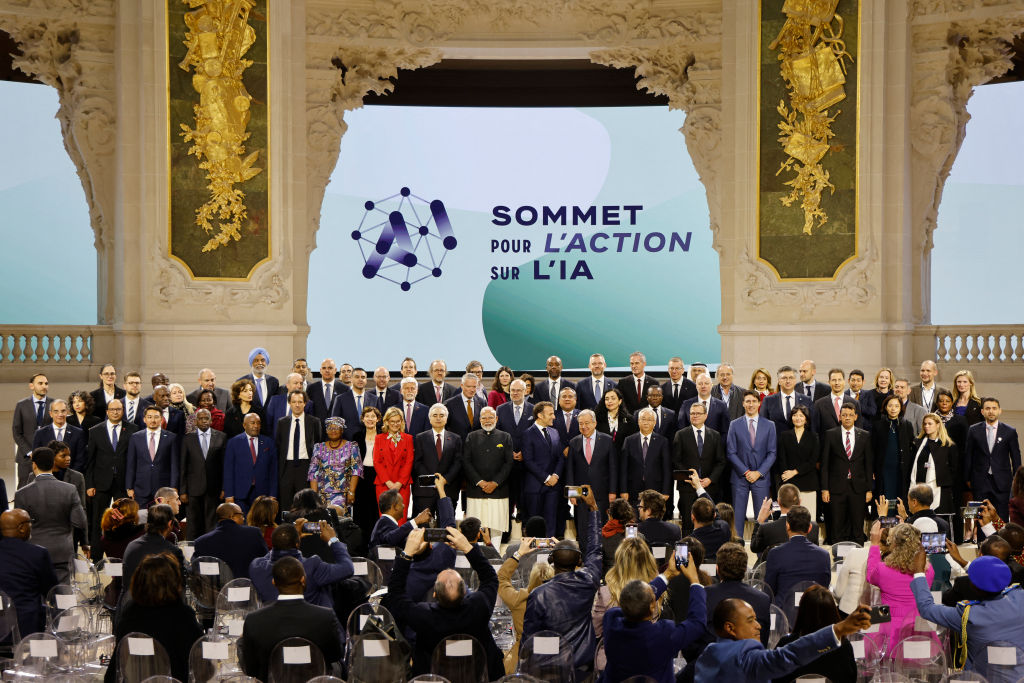France hosted the AI Action Summit in Paris last week. It was a big, international event to drum up support for AI and encourage investments and innovation.
BEUC was not only there but also part of the steering committee that accompanied and advised the organising team led by President Macron’s Special Envoy, Anne Bouverot.
While there are clearly diverging approaches on whether and how to regulate AI, there was a common understanding that this technology can create a lot of good and bad. During the summit, several key themes – such as sustainability, financing, standards of protection, and AI scalability – emerged, all highly relevant to consumers, who will be engaging ever more often with AI-powered systems.
During the state dinner hosted by President Macron at the Élysée Palace, I had the rare opportunity to take the floor and share with world leaders the European consumer organizations’ perspective. I made two main points, which I elaborate on below: first, on how regulation can help steer innovation in a way that benefits consumers and society as a whole, and secondly, on the role of consumers in financing the development of AI.

Regulation for progress
The success of AI will depend on consumer engagement. And for consumers to use and benefit from this technology, they must be protected, which makes regulation essential. While some portray consumer protection as a barrier to innovation, regulation actually plays a crucial role in ensuring that markets remain open and competitive and that innovation in AI leads to societal progress, instead of being a tool for economic, technological, and political power concentration.
In the current volatile political and economic global environment, it is the regulatory framework – the rule of law – that can serve as a guide or “compass” in the development of AI in a way that puts the interests of society first. It establishes the parameters of what is acceptable and what is not. For example, this is what elected EU representatives decided when banning the use of AI for social scoring, or when applying more stringent conditions to high-risk AI products, such as health and life insurance due to the risk of discrimination and exclusion. The common declaration that followed the Summit rightly recognized that AI must be inclusive and open, taking a rights and human-centric approach.
Show me the money
However, who finances AI will determine the future and fate of this technology. In this regard, it was very positive to see the efforts to increase public expenditure to develop AI for the common good, with Commission President Ursula von der Leyen announcing an initiative to mobilise €200 billion for investment in AI and the newly created “Current AI” to support innovation for the public good. However, the real power to democratise AI through investments lies in people. Consumers, as retail investors, can play a significant role in financing not only AI but also the overall European economy.
Cash and bank deposits amounted to €11.626 billion in 2023 and are increasing. If we look at the allocation of household financial assets, cash and bank deposits represented 31.2% of all assets that year, while in the US, it is “only” 12.7%. These numbers have since worsened. In other words, US consumers put their money to work much more than Europeans because they have better investment products.
If we want Europeans to finance our economy, we need to move more money into capital markets and increase equity exposure.
For this to happen, we need to give consumers attractive investment products with decent returns and appropriate tax incentives, as currently, our national governments are subsidising some of the worst performing products. We need a change in our regulatory and supervisory framework that empowers European consumers to decide how their money is going to be used.
Building trust
During the closing ceremony of the summit, US Vice-President Vance called for deregulation and name-checked three European laws designed to protect consumers and fundamental rights, namely the AI Act, the GDPR, and the Digital Services Act. He portrayed them as a barrier to innovation for American firms, thereby going against American interests. The remarks that followed in the Munich Security Conference reinforced the America First doctrine, and while there are mixed feelings about how to interpret these statements (e.g. an attack on our democracy? A wake-up call for Europe?), the reality is that the world has changed, and Europe must show leadership not only toward foreign states but, more importantly, to its citizens. And building trust in our markets is an essential part of it.
Europe should not stop protecting consumers and citizens.
That would be a disaster. Consumer protection can be a boost to innovation, rather than a barrier. What truly hinders innovation is Europe’s inability to bring down barriers that fragment our Single Market. Most of these barriers stem from both business practices and national protectionisms. AI offers a unique opportunity to show that we can build trustworthy AI systems that serve consumers across all 27 Member States, while ensuring a high level of consumer protection and accountability.

Enforce, baby, enforce
To create these enabling conditions, we must ensure everyone plays by the same rules.
No matter whether companies are from the US, Europe, or China—if you operate in the Single Market, you must abide by our rules.
This means that enforcement is crucial, as it helps ensure markets are competitive and open and that consumers are protected when things go wrong.
AI presents many challenges regarding who should enforce the law and how. As Member States organise their enforcement structures following the implementation of the AI Act and the European Commission sets up its AI Office, we need to keep in mind that ‘business as usual’ is not an option.
Greater enforcement centralisation will be needed – for example, in the field of consumer law in the upcoming review of the Consumer Protection Cooperation Regulation. For European problems, we need European solutions. That means creating European structures to make sure companies have the much-needed level playing field, but also ensuring that consumers across the EU have the same chances of being protected against firms violating European rules or engaging in regulatory arbitrage.
Our message is clear: we can have both innovation and sustainable growth while ensuring our fundamental rights and values are upheld and reinforced. We just need to build on our strengths, leveraging a common market of 450 million consumers.

